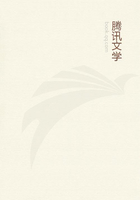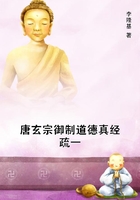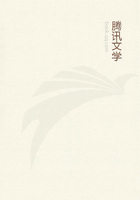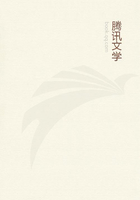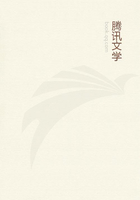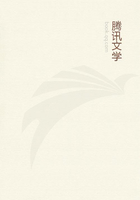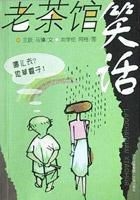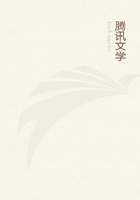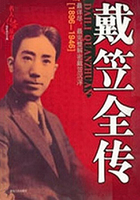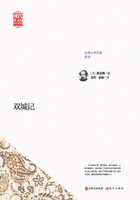Gilliat, alone upon the reef at his herculean task, offers a type of human industry in the midst of the vague "diffusion of forces into the illimitable," and the visionary development of "wasted labour" in the sea, and the winds, and the clouds. No character was ever thrown into such strange relief as Gilliat. The great circle of sea-birds that come wanderingly around him on the night of his arrival, strikes at once the note of his pre-eminence and isolation. He fills the whole reef with his indefatigable toil; this solitary spot in the ocean rings with the clamour of his anvil; we see him as he comes and goes, thrown out sharply against the clear background of the sea. And yet his isolation is not to be compared with the isolation of Robinson Crusoe, for example; indeed, no two books could be more instructive to set side by side than LES TRAVAILLEURS and this other of the old days before art had learnt to occupy itself with what lies outside of human will. Crusoe was one sole centre of interest in the midst of a nature utterly dead and utterly unrealised by the artist; but this is not how we feel with Gilliat; we feel that he is opposed by a "dark coalition of forces," that an "immense animosity" surrounds him; we are the witnesses of the terrible warfare that he wages with "the silent inclemency of phenomena going their own way, and the great general law, implacable and passive:" "a conspiracy of the indifferency of things" is against him. There is not one interest on the reef, but two. Just as we recognise Gilliat for the hero, we recognise, as implied by this indifferency of things, this direction of forces to some purpose outside our purposes, yet another character who may almost take rank as the villain of the novel, and the two face up to one another blow for blow, feint for feint, until, in the storm, they fight it epically out, and Gilliat remains the victor; - a victor, however, who has still to encounter the octopus. I need say nothing of the gruesome, repulsive excellence of that famous scene; it will be enough to remind the reader that Gilliat is in pursuit of a crab when he is himself assaulted by the devil fish, and that this, in its way, is the last touch to the inner significance of the book; here, indeed, is the true position of man in the universe.
But in LES TRAVAILLEURS, with all its strength, with all its eloquence, with all the beauty and fitness of its main situations, we cannot conceal from ourselves that there is a thread of something that will not bear calm scrutiny. There is much that is disquieting about the storm, admirably as it begins. I am very doubtful whether it would be possible to keep the boat from foundering in such circumstances, by any amount of breakwater and broken rock. I do not understand the way in which the waves are spoken of, and prefer just to take it as a loose way of speaking, and pass on. And lastly, how does it happen that the sea was quite calm next day? Is this great hurricane a piece of scene-painting after all?
And when we have forgiven Gilliat's prodigies of strength (although, in soberness, he reminds us more of Porthos in the Vicomte de Bragelonne than is quite desirable), what is to be said to his suicide, and how are we to condemn in adequate terms that unprincipled avidity after effect, which tells us that the sloop disappeared over the horizon, and the head under the water, at one and the same moment? Monsieur Hugo may say what he will, but we know better; we know very well that they did not; a thing like that raises up a despairing spirit of opposition in a man's readers; they give him the lie fiercely, as they read. Lastly, we have here already some beginning of that curious series of English blunders, that makes us wonder if there are neither proof-sheets nor judicious friends in the whole of France, and affects us sometimes with a sickening uneasiness as to what may be our own exploits when we touch upon foreign countries and foreign tongues. It is here that we shall find the famous "first of the fourth," and many English words that may be comprehensible perhaps in Paris. It is here that we learn that "laird" in Scotland is the same title as "lord" in England. Here, also, is an account of a Highland soldier's equipment, which we recommend to the lovers of genuine fun.
In L'HOMME QUI RIT, it was Hugo's object to 'denounce' (as he would say himself) the aristocratic principle as it was exhibited in England; and this purpose, somewhat more unmitigatedly satiric than that of the two last, must answer for much that is unpleasant in the book. The repulsiveness of the scheme of the story, and the manner in which it is bound up with impossibilities and absurdities, discourage the reader at the outset, and it needs an effort to take it as seriously as it deserves. And yet when we judge it deliberately, it will be seen that, here again, the story is admirably adapted to the moral. The constructive ingenuity exhibited throughout is almost morbid. Nothing could be more happily imagined, as a REDUCTIO AD ABSURDUM of the aristocratic principle, than the adventures of Gwynplaine, the itinerant mountebank, snatched suddenly out of his little way of life, and installed without preparation as one of the hereditary legislators of a great country. It is with a very bitter irony that the paper, on which all this depends, is left to float for years at the will of wind and tide. What, again, can be finer in conception than that voice from the people heard suddenly in the House of Lords, in solemn arraignment of the pleasures and privileges of its splendid occupants? The horrible laughter, stamped for ever "by order of the king" upon the face of this strange spokesman of democracy, adds yet another feature of justice to the scene; in all time, travesty has been the argument of oppression; and, in all time, the oppressed might have made this answer:
"If I am vile, is it not your system that has made me so?"

